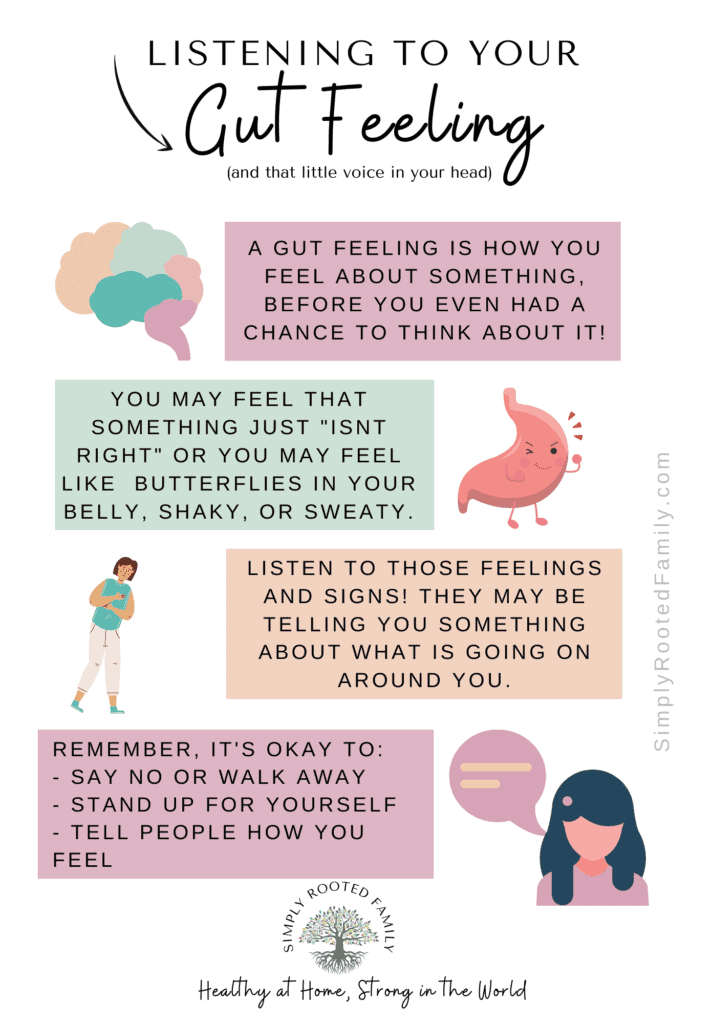There are small ways you can raise a self-assured child – instead of a doormat or people pleaser. These 5 tips will help you teach kids this priceless lesson: to stand up for yourself.
As a lifelong people-pleaser myself, I know the red flags to look for that indicate someone has ‘doormat’ tendencies.
When I say doormat, I mean someone who will not complain or defend themselves when they are being treated unfairly.
Just like a doormat, these personality types often lead a human being to get walked on, smeared with dirt, and left out to dry.
When I noticed my oldest son had become an easy prey for bullies, I decided to step in. He would come home each day with the same sad sob story about recess.
A few boys in his grade wouldn’t let him play football. They would tell him he could be a referee or sit and watch – and he did just that.

Finding the middle ground between raising a kind child and a child that people take advantage of can feel like a gigantic challenge.
The good news is parents can coach their kids to stand up for themselves with these 5 small steps.
You may also like: Communicating with teenagers and kids, during good and bad times
Stand up for Yourself 101
When kids are faced with a difficult situation, their brains dig through past experiences and they typically approach the situation with a lot of emotion.
From the parent’s point of view, you may have a hard time watching your kid struggle. However, at the end of the day, when you coach your kid to listen to their heart they will grow into resilient adults.
Related: How to Wire Your Kid for Happiness Later in Life
Teach your kids these lessons which give them the tools to remain calm and stand up in the face of opposition.
1) Effectively Label Emotions
The first step is to help you child identify and voice their feelings.
Growing evidence suggests that it is difficult to identify and label the variety of emotions we experience at any given time.
In fact, in one poll 60 percent of interviewed college students said they did not feel emotionally prepared to deal with negative feelings such as anxiety and disappointment.
Fix this by encouraging your child to speak in “I” statements.
“I” statements will force your child to express their own feelings, rather than placing blame on others.
For example:
- “You” statement: You never listen to me
- “I” statement: I feel frustrated when I feel like I can’t express myself.

2) Quick Body Language Adjustments
Continual research shows that body language counts for a whopping 55 percent of what is absorbed while 38 percent is tone of voice. Only 7 percent is the actual words that are spoken.
Tell your child to do these three things to display confidence:
- Make eye contact
- Stand up straight
- Face people (square up your shoulders) when they are speaking to them
As a parent, a good thing you can do is to have conversations with your child about how their body language can help them communicate in a positive way.
Related: Teaching Assertive Communication Skills to Kids (Avoid passive-aggressive behavior)
3) Listen to Your Gut Feelings
A gut instinct is the immediate feeling you have about something, before even thinking about it. This can even be your knee-jerk reaction to a given situation.
The term gut instinct actually comes from some of the body signs you experience when faced with real issues in life. This may feel like butterflies in the stomach, tension in the body, strong feelings of happiness or worry.
Tell your child to listen to the signals their body is giving them.
Related: Set Kids up to Have a Beautiful Adulthood with These Tips
For example, a friend wants them to cross the busy road to go to a park. Before even thinking about a bad thing that could happen, they may have a sinking feeling in their belly. Tell your child to pay attention to these feelings, take a deep breath, and consider what they are telling you.
Print this and review it with your child:

4) “No” is an Important Response
Toddlers seem to love the word “No”, but as humans grow up, some of us seem to lose the ability to stand up for ourselves.
There are right ways to stand up for yourself.
Obviously, your children should be respectful and listen to authority figures, but it is important to know that ‘No’ is an important answers.
If a child feels uncomfortable, overwhelmed, or doesn’t want to do something (depending on the situation), they can say:
- No, but thank you
- I can’t do that right now
- That doesn’t feel right
- I have to go home right now
- No, I think that could hurt someone
They can be kind and take the high road while still using the work “NO”.
Related: Raise kids who lift up others, not put them down
5) Build Confidence at Home
There are things you can do in the first place to raise children who are happy at home and strong in the world.
- Develop anchor routines, or daily, weekly, or yearly traditions that your children can rely on
- Encourage your kid to do activities (sports, an instrument, cub scouts) that can build friendships, skills, and confidence
- Have open family discussions about what went good and bad throughout the day (great time to do this is during family dinners)
Confident children are less likely to be a ‘door mat’ or people-pleaser.
Related: Advice on How to Pay Attention to Your Own Needs and Stop Being a People Pleaser

Final Thoughts on How to Stand up for Yourself
This 5 step plan provides a healthy way to raise children who stand up for what they believe in.
After having these conversations with my son, my husband bought him his own football and encouraged him to start his own recess squad.
One where everyone is welcome to play.
Now, instead of gloomily watching the other boys play, he is a little recess hero.
For more up to date discussions, follow us on Facebook.


5 Ways to Wire Your Kid's Brain for Happiness - Simply Rooted Family
Thursday 7th of April 2022
[…] for tips to raise self-assured kids (instead of people-pleasers)? Start […]
Dear Child, Not Everyone is Going to Like You - And That's Okay - Simply Rooted Family
Tuesday 22nd of February 2022
[…] For more, read: How to Raise a Self-Assured Kid, not a Doormat […]
How Understanding Your Kid's Personality Type will Help you Connect on a Whole New Level - Simply Rooted Family
Wednesday 2nd of February 2022
[…] to raise self-assured kids? Click […]
What is Enmeshed Parenting? 6 Telltale Signs of Toxic Parenting - Simply Rooted Family
Tuesday 1st of February 2022
[…] Want to Raise Self-assured kids? Click here for tips on how to stop raising a people-pleaser. […]
5 Types of People Your Child Will Eventually Face - Simply Rooted Family
Tuesday 18th of January 2022
[…] your kid a people-pleaser? Teach them how to stand up for themselves by doing […]